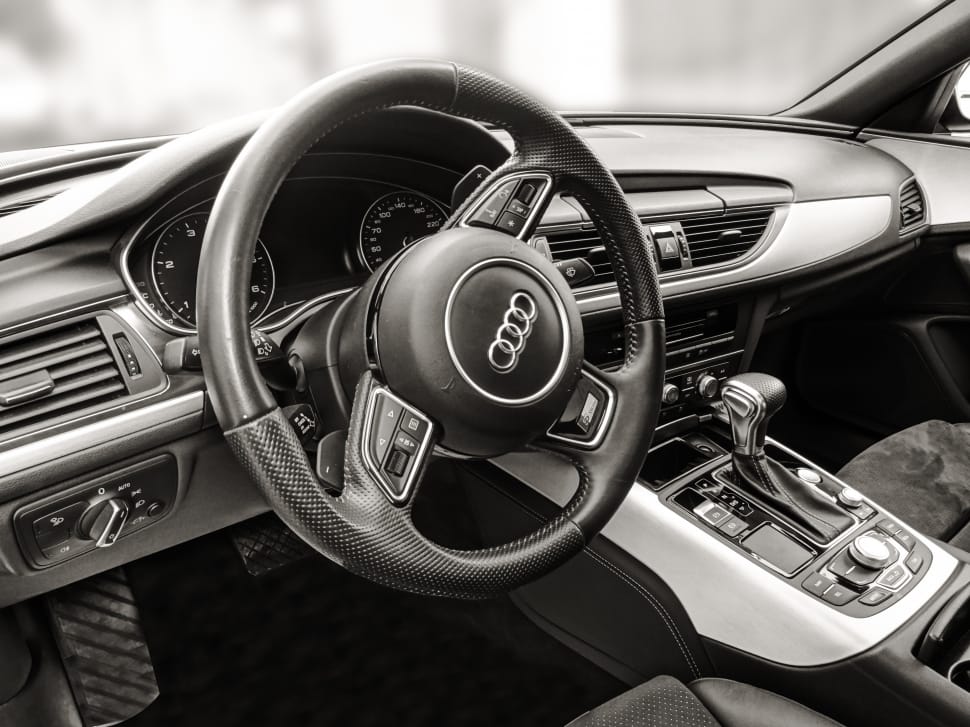Posted on 10/6/2021

Hearing your car make a grinding sound when you start, turn or stop can be very disconcerting. When you hear your car grinding it means something is wrong with one or more of its parts. This can make driving your car unsafe, because you never know when the car part that is making the grinding sound will break or otherwise fail. If you hear a grinding noise coming from your car, your first step should be to determine what is causing it. You can either take it to an auto repair shop to have a thorough diagnostic workup done or, if you are mechanically inclined, you can try to figure it out yourself. THE RIGHT TOOLS, TRAINING AND TECHNOLOGY In order to safely and accurately determine why your car is making a grinding sound when you start, turn or stop, you need the right tools, training and technology. At our auto repair shop, we have a wide range of top of the line tools designed to fit and fix every part or system in your car. We also have well-trained, highly skilled, experienced, au ... read more
Posted on 10/6/2021

As a full-service mechanic shop an expertise of ours is suspension repair and maintenance. If your vehicle’s suspension system is acting up in any way, you’re not just feeling a less comfortable ride, but less control of your car, which can put you at a huge safety risk. So, let's cut the suspense a bit and look at how auto suspension systems work. Time to get to know the various parts that may need service or replacement to maintain the ease and integrity of your vehicle’s suspension performance. THE HOW & WHY OF AUTO SUSPENSION SYSTEMS SUSPENSION REPAIR The main job of your car’s suspension system is to structurally support for your vehicle while it maintains a comfortable riding condition. It does this by using suspension system components built to help tires maintain firm even contact with the road. Vehicle suspension compensates for bumps, potholes, dips, and sudden turns. Components include ball joints, coil springs, leaf springs, tie rods, torsi ... read more
Posted on 10/6/2021

If you’ve been driving for any length of time, you know how important your steering system is. Without this component, you wouldn’t be able to stay in control of your car. When it’s working the way it should, you probably don’t think about your steering wheel. However, if something goes wrong and it’s incredibly difficult to steer your vehicle, then all you can think about is getting it fixed. Finding out why it’s hard to turn your wheel is important and should be taken care of as soon as possible. Taking it to a professional is in your best interest, as they’ll be able to quickly and accurately determine what is wrong and fix it. There are many different reasons why your power steering system might be hard to move, and the most common are listed below. LOW POWER STEERING FLUID LEVELS One of the most common reasons why you may find it hard to turn your steering wheel is because your vehicle is low on power steering fluid. This fluid is neede ... read more
Posted on 10/6/2021

Drive axles are axles on engine powered vehicles that transfer energy from the engine and torque from the transmission on to the front, rear or all the wheels. Drive axles respond to the input they receive from the steering wheel to determine how power will be distributed to the wheels. Drive axels run from the differential into the wheels and are an essential for any automobile to be able it to move. Several other systems interface and interconnect with drive axles to power them and control their movement A COMPLEX PIECE OF EQUIPMENT Too many, drive axles seem like a simple, solid object. In actuality, it's a complex piece of equipment that's made up of two half axles connected to the differential and universal joints. Drive axles have several important parts. Those parts include: Axle Constant Velocity (CV) Joints Drive Shaft Differential ... read more
Posted on 10/6/2021

Car safety begins and ends with you. You can't control any of the other drivers on the road with you. However, you can control how you react to them. Whether you're speeding or driving recklessly, you're going to put a lot of wear and tear on your car. You'll need to see a mechanic a lot faster by the continuous use of the brakes than you would if you were driving safely. You're also more likely to need auto repair because of an accident due to your reckless driving. Here are a few tips on how you can be more car aware and how to drive defensively. 1. ALWAYS CHECK LANES One way that you can start using car safety is to check your lanes. While a lot of cars have lane assistance and lane detection systems, some still don't. Even those that do have this sophisticated technology can sometimes be wrong. Checking the lanes yourself is a good practice to use. Whether you're changing lines, merging onto the highway, or just driving the highway, yo ... read more